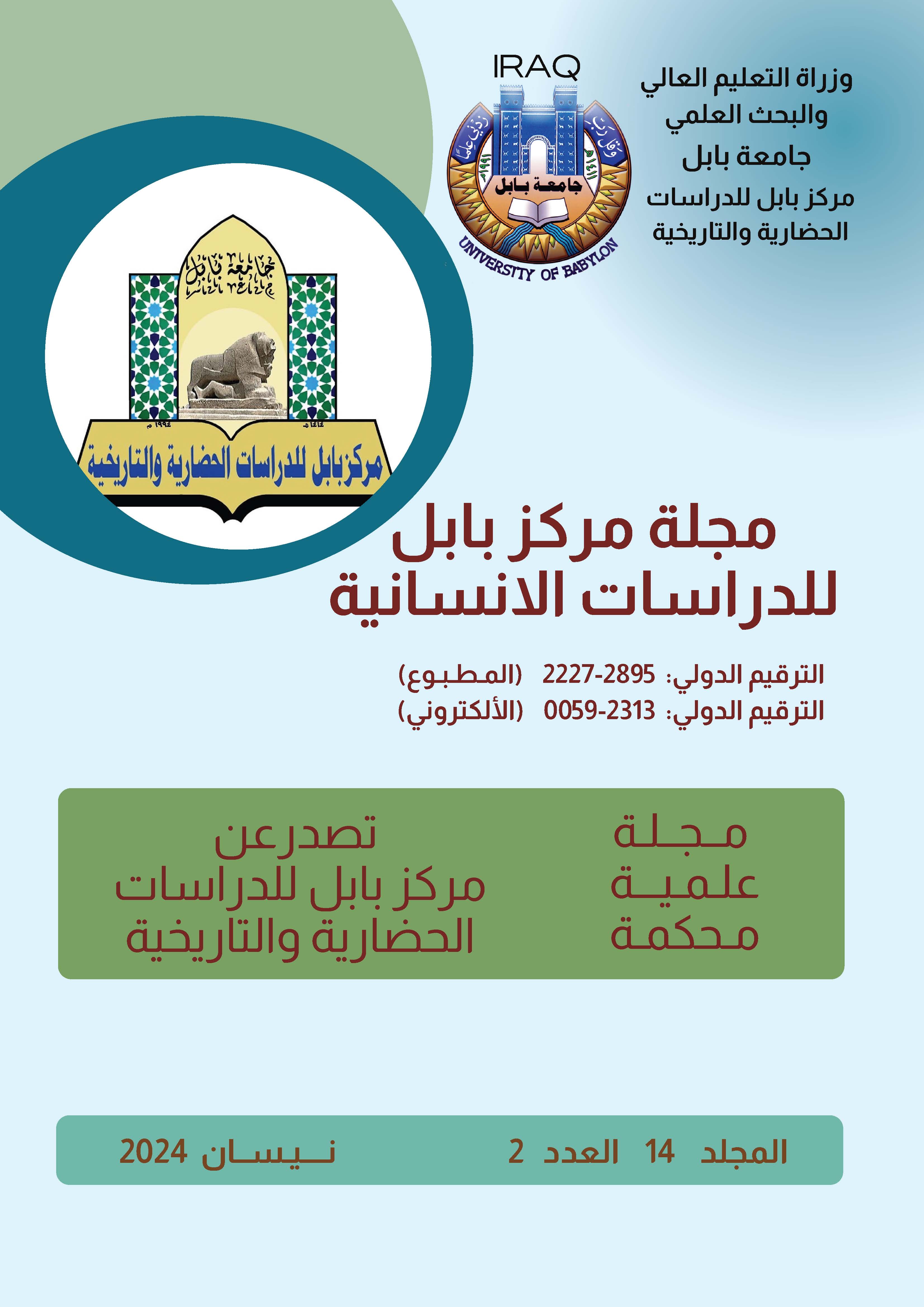العادات والتقاليد والقيم التي وردت في أحاديث الرسول محمد() وذكر فيها الصحابة في كتاب صحيح البخاري دراسة تاريخية
الكلمات المفتاحية:
الرسول محمد ، الصحابة، الكرم، العطاء، الهدايا، الاعياد، العتق، المساواة، العدالة، التكافل الاجتماعيالملخص
يهدف البحث الى تسليط الضوء على ذكر العادات والتقاليد والقيم التي جاءت في احاديث الرسول محمد() وذكر فيها الصحابة, ومن هذه العادات الكرم والعطاء وقيام الرسول محمد() باعطاء اصحابه الاعطيات والهبات لحبه لهم او لتاليف قلوب من دخلوا في الاسلام, وقد تنوعت تلك الاعطيات ما بين الاموال والدواب والثياب والطعام. ومن العادات ايضا الهدايا وقيام الرسول محمد() باعطاء الهدايا لبعض اصحابه, وكذلك باهداء بعض نساء الصحابة ابو بناتهم. ولم يقتصر الامر على قيام الرسول محمد() باعطاء الهدايا فقط وانما كان عليه الصلاة والسلام يقبل الهدية ولا يقبل الصدقة وقد اهديت له العديد من الهدايا. ومن العادات الاخرى الاعياد فقد شرع الاسلام الاعياد للمسلمين وجعلها عيدين وهما عيد الفطر وعيد الاضحى وقد شرع فيهما التزاور والاستانس المشروع حتى ان الرسول محمد() لم ينكر على الاحباش لعبهم بالحراب في مسجده وقال لعمر بن الخطاب() دعهم. ومن العادات والتقاليد العتق من العبودية وقيام الرسول محمد() بحث اهل بيته واصحابه على اعتاق العبيد لما في ذلك من الاجر العظيم, وتم كذلك التطرق الى الاحاديث التي ورد فيها العدالة والمساواة وحث الرسول محمد() اصحبه على ذلك ومنها المساواة بين الابناء وعدم التفريق بينهم, ولم تقتصر المساواة بين الابناء فقط بل شملت المساواة جميع المسلمين وكذلك المساواة بين العبد وسيده. ودعوة الرسول محمد() اصحابه لذلك لتحقيق المساواة بين الجميع وان لا فرق بين سيد وعبد ولا عربي ولا اعجمي الا بالتقوى. وكما حث الرسول محمد() على التكافل الاجتماعي بين المسلمين, وذلك لمواجهة المخاطر والتحديات التي تواجههم معاً كالمجاعة والكوارث الاخرى, وعليهم ان يكونوا كالجسد الواحد من اجل العبور الى بر الامان. وان من العادات والتقاليد الاخرى الصيد وقد عرف العرب الصيد قبل الاسلام, وان الاسلام لم يحرم الصيد وابقى عليه ولكن بشروط تتوافق مع الاسلام منها ان يسمي المسلم على فريسته وكذلك يحرم على المسلم ان يصطاد هو محرم. وان اغلب هذه العادات والتقاليد عرفها العرب قبل الاسلام, ولكن فيها العديد من الشوائب, ولذلك قام الرسول محمد() بتهذيبها وجعلها تتوافق مع الشريعة الاسلامية الغراء.المراجع
التنزيلات
منشور
2024-04-30
إصدار
القسم
Articles







